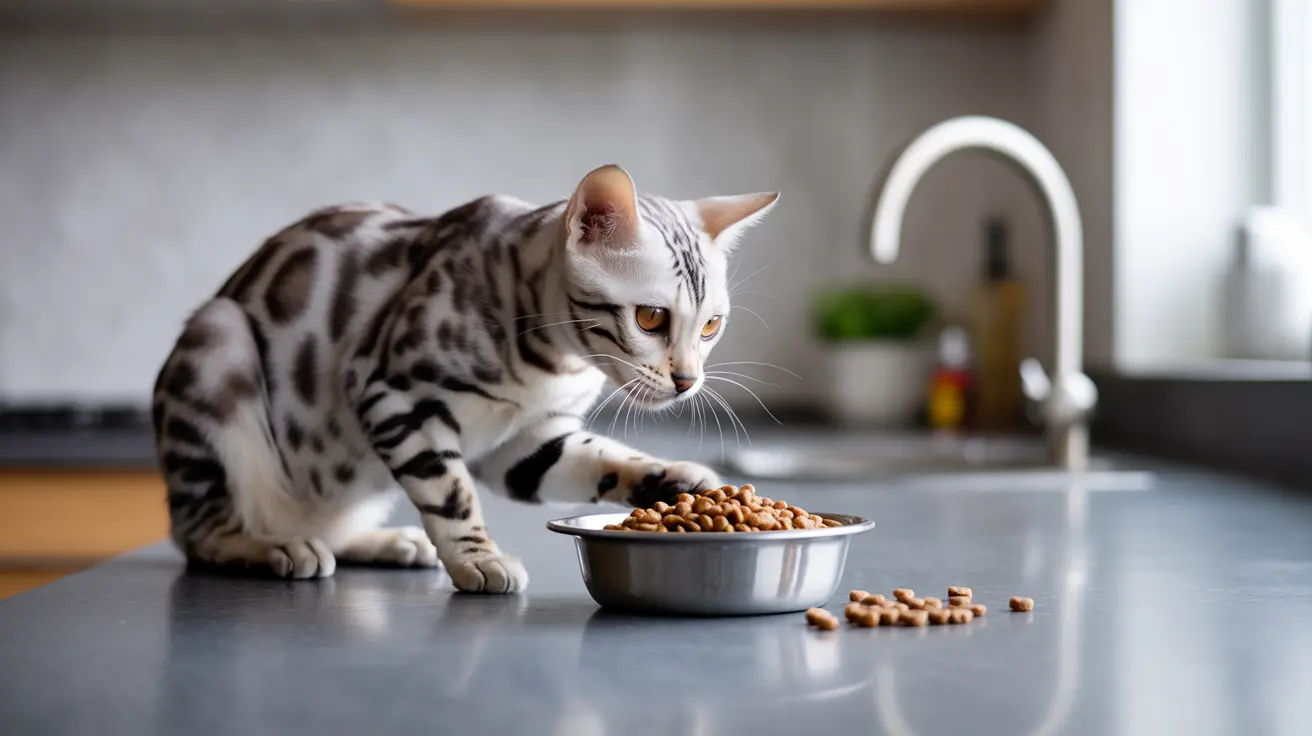Understanding the Kibble Controversy
As cat owners increasingly focus on optimal nutrition for their feline companions, the question "is kibble bad for cats?" has become a pressing concern. While dry cat food offers convenience and affordability, mounting evidence suggests it may not align with cats' natural dietary needs.
This comprehensive guide examines the scientific evidence behind kibble's potential risks, exploring why many veterinary experts now recommend limiting or avoiding dry food in favor of more species-appropriate alternatives.
The Natural Feline Diet vs. Commercial Kibble
Cats are obligate carnivores, evolutionarily designed to thrive on a diet of fresh prey. In nature, this translates to approximately 95% protein and fat, with minimal carbohydrates. However, most commercial kibble contains 25-36% protein and up to 55% carbohydrates – a dramatic departure from cats' biological needs.
This fundamental mismatch between natural feline nutrition and kibble composition can lead to various health complications over time.
Major Health Concerns with Kibble-Based Diets
Dehydration and Urinary Issues
Perhaps the most significant problem with kibble is its low moisture content (typically 9-12%). Cats evolved to obtain most of their hydration from their food, as evidenced by their relatively low thirst drive. This moisture deficit can lead to chronic dehydration, increasing the risk of urinary tract infections, crystal formation, and kidney disease.
Metabolic Disruption
The high carbohydrate content in most kibble forces cats' bodies to adapt to a diet they're not designed to process. This can result in:
- Obesity
- Diabetes
- Insulin resistance
- Inflammatory conditions
Digestive Problems
Many cats experience digestive issues on kibble diets, including:
- Inflammatory bowel disease (IBD)
- Chronic vomiting
- Constipation
- Food sensitivities
The Processing Problem
The manufacturing process used to create kibble involves high-temperature extrusion, which can:
- Destroy essential nutrients
- Alter protein structures
- Create potentially harmful compounds
- Reduce overall nutritional value
Making Better Dietary Choices
While completely eliminating kibble might not be practical for all cat owners, there are several ways to minimize its negative impacts:
Transitional Strategies
- Gradually introduce wet food alongside kibble
- Consider raw or freeze-dried options
- Use kibble as an occasional supplement rather than the primary diet
- Always ensure fresh water is available
Frequently Asked Questions
Is kibble bad for cats?
Yes, kibble can be detrimental to cats' health due to its high carbohydrate content, low moisture levels, and heavy processing. While not immediately harmful, long-term kibble-only diets can increase risks of various health issues including obesity, diabetes, and urinary problems.
What are the risks of feeding my cat a kibble-only diet?
The main risks include chronic dehydration, urinary tract problems, obesity, diabetes, dental disease, and digestive issues. The high carbohydrate content and low moisture levels in kibble can lead to various metabolic and health complications over time.
How can I transition my cat from kibble to a wet or raw food diet?
Make the transition gradually over 2-3 weeks. Start by mixing small amounts of wet food with the kibble, slowly increasing the proportion of wet food while decreasing kibble. Some cats may need even longer to adjust to the new texture and taste.
What should I look for on a kibble label to ensure it's healthy for my cat?
Look for products with named animal proteins as the first ingredients, avoid those with corn or wheat as primary ingredients, and choose options with the lowest possible carbohydrate content. Ensure the food meets AAFCO standards for complete nutrition.
Can mixing kibble with wet food improve my cat's health and hydration?
Yes, adding wet food to your cat's diet can significantly improve hydration levels and overall nutrition. This combination approach can help mitigate some of kibble's negative effects while maintaining the convenience factor some pet owners need.
Conclusion
While kibble isn't immediately harmful to cats, the evidence suggests it's far from optimal for their long-term health. The best approach is to minimize kibble in favor of moisture-rich, protein-focused diets that better match cats' natural nutritional needs. If you must use kibble, supplement with wet food and pay close attention to your cat's hydration and health markers.






